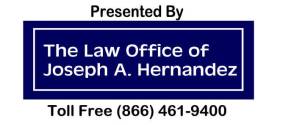|
|
|
|
Diabetes Complications due to Medical Malpractice
Contact us for a Free Consultation at
Free-Consultation@Medical-Negligence-Law.com
if complications from diabetes resulted in the death of a family member or the permanent
loss of kidney function, eyesight, or a limb and a doctor or other health care provider:
- failed to timely diagnosed the diabetes by ignoring
- patient complaints of symptoms or
- lab results indicating high sugar levels, or
- failed to recommend appropriate treatment, or
- failed to properly monitor or follow-up with the patient's treatment.
Please be sure to include your name and a telephone number where we can reach you.
Diabetes Statistics for the United States:
- There are pproximately 5.1 Million undiagnosed people with diabetes,
- Diabetes kills approximately 233,000 people a year,
- Diabetes is the 7th leading cause of death,
- Diabetes is the leading cause of blindness among adults aged 20 to 74,
- Diabetes is the leading cause of kidney failure, and
- Diabetes results in over 70,000 amputations a year.
Warning Signs and Symptoms of Diabetes
There are several warning signs and symptoms that may be
result of diabetes. Somoe of these are mild and
non-specific, while others are severe and require
immediate attention. Among the signs and symptoms for
diabetes are:
- excessive thirst,
- frequent urination,
- unexplained weight loss,
- increased fatigue,
- blurred vision,
- infections or wounds that are not healing,
- severe headaches, and
- loss of consciousness.
The presence of these symptoms, especially if more than one
is present, may indicate the presence of diabetes.
Diagnosing Diabetes
The diagnosis of diabetes, with or without the presence
of signs and symptoms, is normally done with either of the
following blood tests:
- The Casual Plasma Glucose Test
A glucose level greater than 200 mg/dL may indicate
diabetes.
- The Fasting Plasma Glucose Test
may indicate diabetes if above 126 mg/dL.
Once a diagnosis of diabetes is made, proper treatment should
commence immediately.
Treating Diabetes
To treat diabetes, a combination of diet, medication, and/or
insuling may be required. Type 1 diabetes typically requires
insulin regular injections as a person with this type of
diabetes does not produce insulin. Type 2 diabetes can often
be treated successfully with diet and medication. New diabetes
medications have come out in the past few years that make
diabetes much more manageable. If the diabetes progresses, it
may become necessary for the person with type 2 diabetes to
commence taking insulin.
Medical Malpractice and
Complications from Delayed or Incorrect Treatment
The prognosis for diabetes varies. Some cases are mild and
readily treated. Other cases are severe, and permanent
impairment or death is possible without immediate diagnosis
and treatment. With early diagnosis and prompt treatment,
most patients are able to manage their diabetes.
If diabetes is detected and properly treated it can
normally be managed through diet, medication, and
possibly insulin. The severity of complications from diabetes
can increase the longer the disease is present, especially
if the patient does not receive treatment.
Left undiagnosed or not treated
correctly, diabetes can result in permanent
complications including:
- Loss of kidney function,
- Loss of eyesight,
- Loss of extremeties, and even
- death
Any
undue delay in diagnosing or treating diabetes
can thus have tragic consequences. Unfortunately,
too often warning signs are ignored, and treatment
is delayed.
The following are among the more common forms of
negligence or medical malpractice by physicians in
diagnosing and/or treating patients with diabetes:
- Failing to test for diabetes when a patient
reports warning signs or symptoms that can be
caused by diabetes, such as
- excessive thirst,
- frequent urination,
- difficulty with vision, and
- severe headaches
- Delaying the diagnosis of diabetes
- Failing to order appropriate treatment for
a patient with diabetes
- Failing to follow-up with the patient
The above are only examples and are by no means intended
to be an exhaustive list of acts of malpractice.
If you or someone you love have suffered from serious
complications of diabetes due to the neglect of a
physician or other health care provider, you should
immediately contact a competent attorney.
The attorney will work with you to determine
legal options that may be available.
Call or email for a Free Attorney Consultation
Law Office of Joseph A. Hernandez, P.C.
Phone: (781) 461-9400
Toll Free: (866) 461-9400
Email: Free-Consultation@Medical-Negligence-Law.com
Please be sure to include your name and a telephone number where we can reach you.
Thank you for visiting the Law Office of Joseph A.
Hernandez. The material located on our law firm's
web site is intended to be a resource for present
and prospective clients for informational purposes
only and is not intended to be legal advice. This
web site is not an offer to represent you. The act
of sending electronic mail to our firm or to
Attorney Hernandez does not create an attorney-client
relationship and does not obligate the Law Office of
Joseph A. Hernandez or Mr. Hernandez to respond to
your email or to represent you. No attorney-client
relationship will be formed unless you enter into a
signed agreement of representation with the Law
Office of Joseph A. Hernandez. You should not act,
or refrain from acting, based upon any information
at this web site without seeking professional legal
counsel. Under the rules of the Supreme Judicial
Court of Massachusetts and other rules, this
material may be considered advertising. The listing
of areas of practice does not represent official
certification of expertise therein.
|
|



